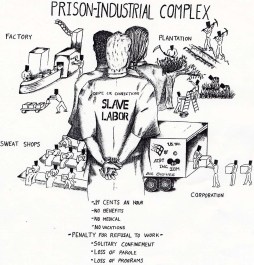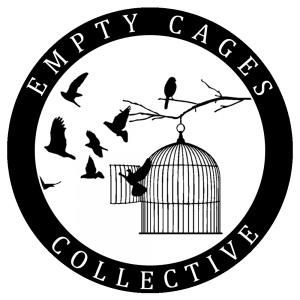As defined by PrisonAbolition.org, the “Prison Industrial Complex (PIC) is a term used to describe the overlapping interests of government and industry that use surveillance, policing and imprisonment as solutions to economic, social and political problems.” It is considered a complex because of the network that essentially exploits free labor (that is prisoners), between the police, privately-owned prisons, companies, the courts, and so forth. Let’s start with the prisons themselves. They harm people who aren’t just in the dull grey walls behind bars; they harm the interrelationships that involve their families and friends, lovers, and their communities.  And if the detainee ends up in a private-jail, which makes up over 10% of the UK’s prison population (the website is British), they are more susceptible to privatization. Privatization is when companies profit off of the prison system, from small things such as electronic tagging, to the big picture of even running the lockup themselves. Since profit and business goals are the main priority for these places, harm reduction, rehabilitation, overcrowding potential, and fair work hours (since prisoners are hired for labor to pack products into boxes, for example) are at an time low.
And if the detainee ends up in a private-jail, which makes up over 10% of the UK’s prison population (the website is British), they are more susceptible to privatization. Privatization is when companies profit off of the prison system, from small things such as electronic tagging, to the big picture of even running the lockup themselves. Since profit and business goals are the main priority for these places, harm reduction, rehabilitation, overcrowding potential, and fair work hours (since prisoners are hired for labor to pack products into boxes, for example) are at an time low.
“The law, in its majestic equality, forbids the rich as well as the poor to sleep under bridges, to beg in the streets, and to steal bread.”
In the U.K. and even in the U.S. we are taught to believe that anyone who breaks the law (a criminal) is a direct threat to our safety of all kinds. Therefore people who suffer most because of poverty, racism or other forms of oppression, tend to be criminalized when they’re just trying to survive. In fact many new offenses, in the thousands, have been created by the criminal justice system simply to get these people out of the streets into penitentiaries. And as a capitalist country, the prison industrial complex has allowed the rich to get richer and profit from these so called criminals. Governments such as U.S. have also used prisons as a tool to control surplus labor and the labor market for people in the workforce. So although the prison-industrial complex may be getting criminals and threats off the streets; behind the scenes after they’re gone from sight, they are being used in this lucrative and dangerous way that are benefitting us in a way that should not be allowed. 
This is an article by the Empty Cages Collective from England, Wales, and Scotland which is a project aimed to resist the prison industrial complex, and is a credible source because it is by a reputable organization in the U.K.
